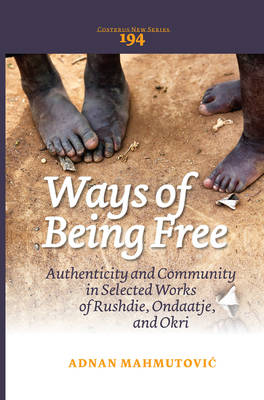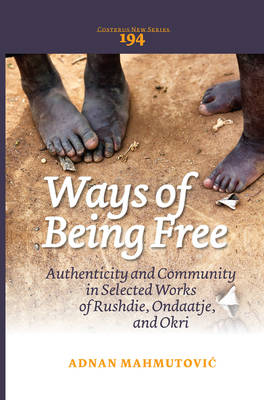
- Afhalen na 1 uur in een winkel met voorraad
- Gratis thuislevering in België vanaf € 30
- Ruim aanbod met 7 miljoen producten
- Afhalen na 1 uur in een winkel met voorraad
- Gratis thuislevering in België vanaf € 30
- Ruim aanbod met 7 miljoen producten
Zoeken
Ways of Being Free
Authenticity and Community in Selected Works of Rushdie, Ondaatje, and Okri
Adnan Mahmutovic
€ 129,95
+ 129 punten
Omschrijving
Iconic migrant writers such as Michael Ondaatje, Salman Rushdie and Ben Okri use their fictional worlds to articulate the ways in which existential "nervous conditions," caused by violent postcolonial history, drive individuals to rework the critical notions of freedom, authenticity and community. This existential thread in their works has been largely ignored or left undeveloped in criticism. Although Rushdie has argued that they primarily write back to the imperial centre(s), in their signature novels, The English Patient, Midnight's Children and The Famished Road, they respond to their conflicting cultural and ethnic heritages by dramatizing characters in traumatic struggles with belonging and affiliation. As a way of coping with their identity crises, most characters succumb to the political rhetoric of communalism. The central characters, however, are driven by a powerful desire for self-sufficiency. Yet, since this individualism clashes with their need for communal sharing, they enact a form of creative destruction of their singular selfhood and communal identity. They experience a certain plurality of singular selfhood and participate in forms of "inoperative communities," which elicit bonds without ties and coexistence without the necessity of a common work and essence.
Specificaties
Betrokkenen
- Auteur(s):
- Uitgeverij:
Inhoud
- Aantal bladzijden:
- 252
- Taal:
- Engels
- Reeks:
- Reeksnummer:
- nr. 194
Eigenschappen
- Productcode (EAN):
- 9789042035348
- Verschijningsdatum:
- 1/01/2012
- Uitvoering:
- Paperback
- Formaat:
- Trade paperback (VS)
- Afmetingen:
- 155 mm x 234 mm
- Gewicht:
- 353 g

Alleen bij Standaard Boekhandel
+ 129 punten op je klantenkaart van Standaard Boekhandel
Beoordelingen
We publiceren alleen reviews die voldoen aan de voorwaarden voor reviews. Bekijk onze voorwaarden voor reviews.








